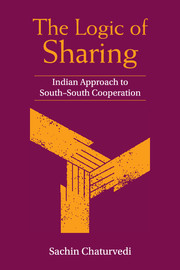Book contents
- Frontmatter
- Contents
- List of Tables and Figures
- Foreword
- Preface
- List of Abbreviations
- Section I Policy and Institutional Framework
- Section II Country and Regional Case Studies
- 4 Nepal: Evolving Framework and the Success of Communities
- 5 New Vigour in Africa: Ethiopia and Mozambique
- 6 Entrepreneurship Development in Laos and Cambodia
- 7 Exploring Niches in CIS: Experiences in Tajikistan and Kyrgyzstan
- Section III Summing Up
- Bibliography
- Index
5 - New Vigour in Africa: Ethiopia and Mozambique
from Section II - Country and Regional Case Studies
Published online by Cambridge University Press: 05 March 2016
- Frontmatter
- Contents
- List of Tables and Figures
- Foreword
- Preface
- List of Abbreviations
- Section I Policy and Institutional Framework
- Section II Country and Regional Case Studies
- 4 Nepal: Evolving Framework and the Success of Communities
- 5 New Vigour in Africa: Ethiopia and Mozambique
- 6 Entrepreneurship Development in Laos and Cambodia
- 7 Exploring Niches in CIS: Experiences in Tajikistan and Kyrgyzstan
- Section III Summing Up
- Bibliography
- Index
Summary
Different facets of the development compact add colour to the India-Africa relationship. Hardly any element is missing from the diversity of the engagement, including capacity building, technology sharing, investment, trade and development finance. All are present in various proportions and in a very different ordering in various countries. The most striking element in this diversified relationship is that which has evolved in Ethiopia and Mozambique. As an example the value chain (or more commonly in business literature ‘supply chain’) approach for supporting the sugar industry is a unique experiment in the bilateral partnership with Ethiopia; it brings support across the board for expanding the sugar sector in keeping with national development priorities. In the case of Mozambique, financing a solar panel production unit is a marked departure from the way India has previously supported projects in the realm of advanced technologies; it has provided not only capacity for domestic rural electrification but also scope for export of the panels. In this chapter, we explore these two case studies at length, while enumerating broad features of the India-Africa partnership.
Broad trends
It may be noted that the Indian Diaspora has been very important in shaping the evolution of India's development cooperation policy in some specific contexts, and has been key to linkages with Africa. India has the world's second largest Diaspora (almost 22 million in 2012) spread across 205 countries in almost every major region on the planet; nearly three million are in Africa. This aside, Indian engagement with Africa is centuries-old and from the beginning had very different connotations from those now generally assumed, by the Western media. Resource extraction was not the only reason for involvement. India encouraged African countries to promote indigenisation of their economies. The idea was to support the absorption of concepts such as self-help and self-reliance, which had guided India's own development trajectory. Nowadays engagement in agriculture tends to be termed a ‘land grab’ but, in fact the, history of the India's agricultural partnership began in 1952 when at the request of the Ethiopian Government, Delhi put forward a permanent settlement scheme for Indian agriculturists in Ethiopia. As a part of this scheme eight Indian peasant families were sent to Ethiopia in October 1953 and almost 40 hectares of land was allotted to each family.
- Type
- Chapter
- Information
- The Logic of SharingIndian Approach to South–South Cooperation, pp. 127 - 148Publisher: Cambridge University PressPrint publication year: 2015



